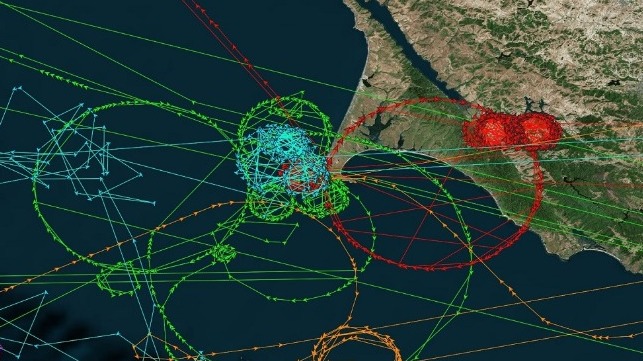U.S. DOT, MARAD Convene Panel on GPS Jamming and Spoofing

“How to Steal a Ship” will be one of the presentations at a U.S. Department of Transportation workshop on the 3rd of December. The event will feature speakers from Maersk, the U.S. Coast Guard, MARAD, and the department’s Research and Technology arm, among others.
Jamming, blocking signals, and spoofing - sending false signals to make a receiver report it is in a false location - have been increasing concerns for maritime operators over the last five years. A study by the German research institute DLR found interference on GPS frequencies during every phase of a year-long voyage between Europe, the Far East and back. In 2019, the U.S. Coast Guard brought interference with GPS signals as an “urgent issue” to the International Maritime Organization.
While certainly a concern for ship operators, interference with GPS has also become a problem for every part of the maritime supply chain including rail, trucking, and port cargo handling. Criminals regularly use GPS jamming to disable tracking devices when hijacking trucks, stealing cargo, and shipping stolen vehicles in containers. Port operations around the nation are periodically interrupted when truckers, wanting to defeat fleet tracking systems, bring GPS jammers into a port area. Unfortunately, a lack of monitoring systems and commercial concerns mean that reports of these kinds of incidents are difficult to detect and usually not publicly available.
Much more obvious is interference with shipboard receivers. Shipboard Automatic Identification Systems (AIS) broadcast GPS-based location information nearly continuously. AIS signals are picked up by coastal and satellite-based sensors, and much of this information is publicly available or can be easily accessed.
In 2017, The Maritime Executive reported on the Resilient Navigation and Timing Foundation’s discovery of a pattern of GPS spoofing in the Black Sea. Hundreds of ships were reporting their locations as the middle of Russian airports. A subsequent study by the non-profit C4ADS found almost 3,000 ships impacted over a two-year period.
Ships at Chinese ports often find their GPS receivers showing locations hundreds of meters ashore and circling government buildings. This spoofing technique seems to have become available on the dark market and has been seen elsewhere. The non-profit Skytruth has documented ships in widely dispersed parts of the globe reporting they are off of northern California and sailing in circles.

that matters most
Get the latest maritime news delivered to your inbox daily.
So, is it really possible to steal a ship by jamming or spoofing GPS signals? Register here for the workshop and attend on December 3 to find out.
Dana A. Goward is the President of the Resilient Navigation and Timing Foundation, a 501(c)3 scientific and educational charity supporting policies and systems to protect GPS/GNSS users.
The opinions expressed herein are the author's and not necessarily those of The Maritime Executive.
